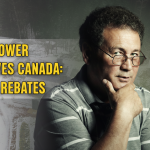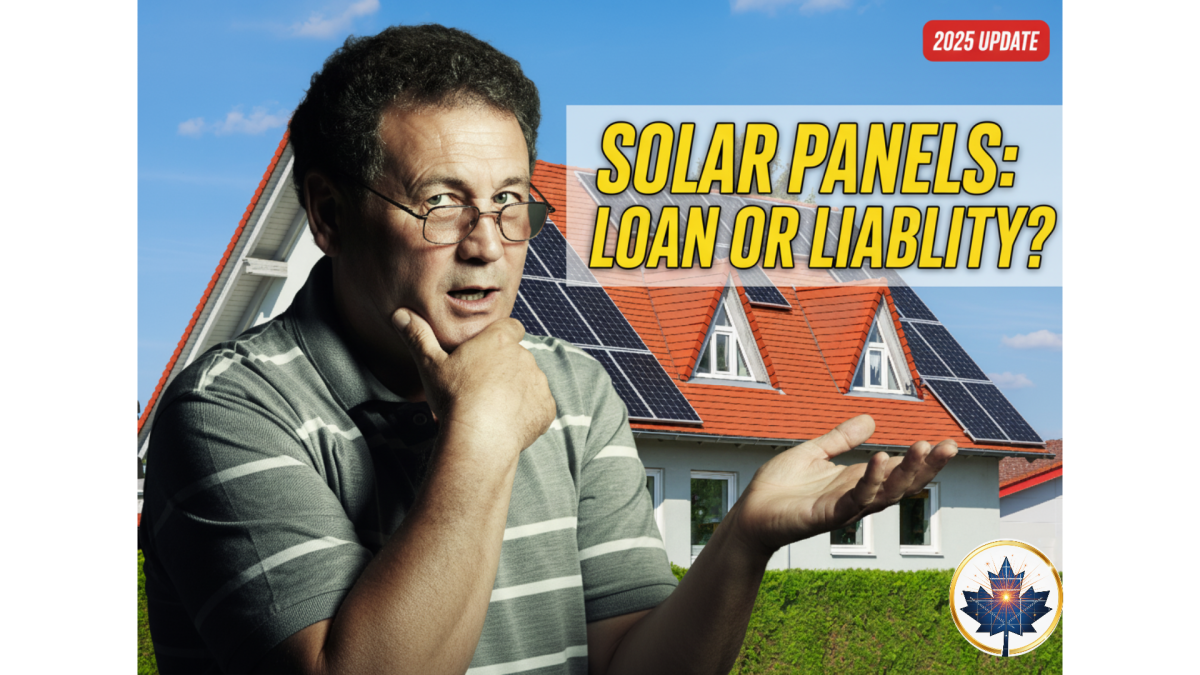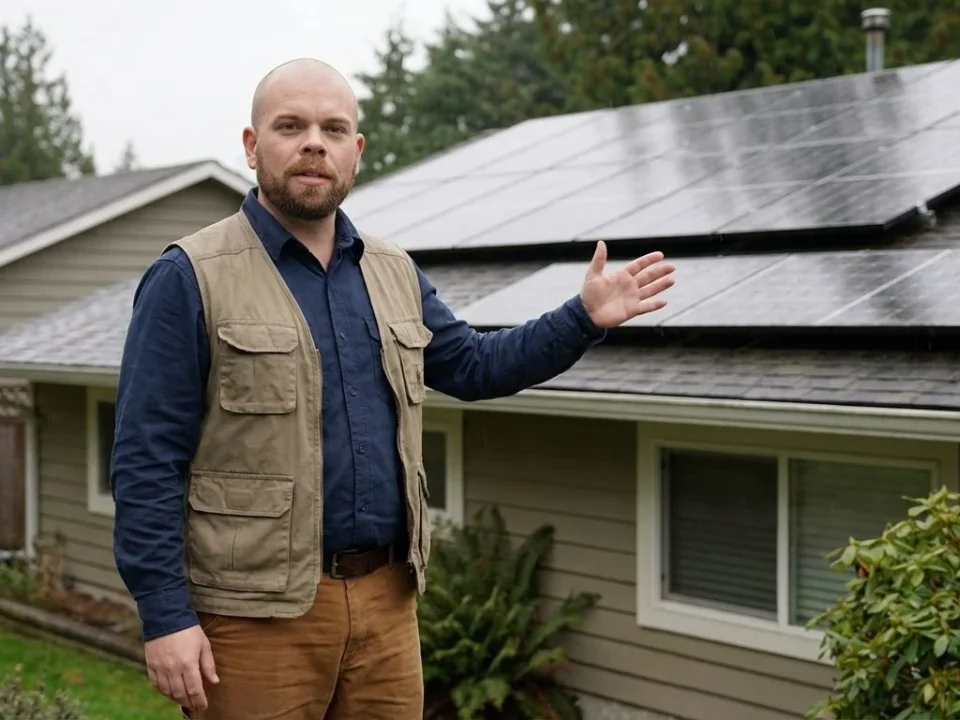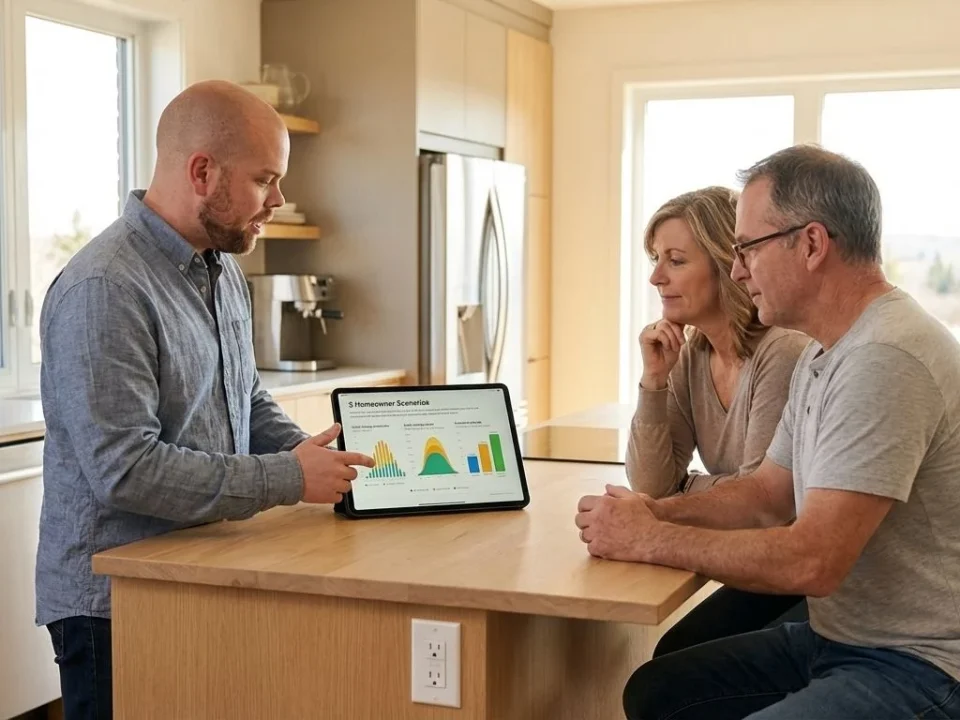
Solar Panel Kelowna BC: Installation, Cost and Rebates Explained
October 14, 2025
Solar Power Incentives Canada: Grants, Rebates Federal And Provincial
October 16, 2025You see them popping up on rooftops all over your neighborhood—sleek, dark solar panels soaking up the sun. You’ve heard the talk about cutting hydro bills down to almost nothing and doing something good for the planet. But let’s get down to brass tacks. The big question is a financial one: If you invest thousands of dollars in a solar energy system for your home, will you actually see that money back, and maybe even more, when it’s time to sell?
The simple answer is yes, solar panels typically increase the value of a Canadian home. But the real answer, the one that matters to your bank account, is a lot more detailed. The difference between adding a significant chunk to your asking price and creating a complicated mess for a future sale boils down to a few critical details, and it’s important to separate fact from some common solar panel myths.
My name is Vitaliy Lano, and through my work at SolarEnergies.ca, I’ve seen homeowners navigate this exact question for years. We’re going to break down the practical benefits, the potential headaches, and the strategies you need to know.
Do Solar Panels Increase My Home Value in Canada?
First, let’s get one thing straight. A potential buyer isn’t buying solar panels; they’re buying the savings that come with them. This is the fundamental principle that drives the increase in your home value. Think of it less like an appliance and more like a feature that cuts down the home’s running costs, forever.
Natural Resources Canada has pointed out that energy-efficient homes are simply more attractive to buyers. The Appraisal Institute of Canada backs this up, suggesting that the value of a solar installation is directly tied to the income—or savings—it generates.
How Much Value Do Solar Panels Actually Add?
Everyone wants a simple number. Will solar add 5% to my home’s value? The truth is, it’s not that straightforward here in Canada. Unlike the United States, where credible studies show a clear home value premium of around 4% to 7% for homes with solar, we don’t have a single, official province-by-province percentage table to point to.
But that’s not a bad thing. The Canadian approach, guided by appraisal professionals, is more practical. The value increase is directly tied to documented energy savings and local electricity costs. This is a value based on proven performance, not just a flat percentage.
This is why we rely on a solid rule of thumb: for every $1,000 you save in annual energy costs, your home’s value can increase by $15,000 to $20,000. A system in a high-cost province will show bigger savings and add more value than the exact same system where electricity is cheaper. It’s a direct link. A client of mine in Barrie, Ontario, with annual savings over $2,100, had a powerful selling point that justified a significant price increase when he later sold.
But this isn’t a blanket guarantee. The actual figure is shaped by several key factors.
What Factors Determine if Solar Panels Increase Home Value?
Not all solar installations are created equal. Where you live and what you install play a massive role in the value proposition.
How Your Province Impacts Value
Location is everything. As we just covered, the added value is directly linked to local electricity prices. A home in a province with sky-high electricity rates will see a much larger value increase from solar panels because the savings are more significant and more compelling to a buyer. For a detailed breakdown, it’s best to check the specifics for your province.
| Province/Territory | Average Residential Electricity Rate (cents/kWh) – 2025 | Market Premium Potential |
|---|---|---|
| Nova Scotia | 19.1 | Higher |
| Prince Edward Island | 17.8 | Higher |
| Ontario | 16.0 | Higher |
| Saskatchewan | 15.5 | Higher |
| Alberta | 15.2 | Higher |
| British Columbia | 13.5 | Moderate |
| Manitoba | 10.2 | Lower |
| Quebec | 8.1 | Lower |
(Data estimated based on 2023-2024 trends from provincial utility reports)
A solar panel system in Saskatchewan or PEI is inherently more valuable than the same one in Quebec or Manitoba, simply because it saves the homeowner more money every single month.
How the Age and Condition of the Solar Panel System Impact Home Value
Like any part of your home, a solar energy system’s age matters. A brand-new system with the latest technology is a major selling feature. A 15-year-old system, while still producing power, might be viewed by a potential buyer as an asset they’ll need to maintain or replace down the line.
The game-changer here is the transferable warranty. Most top-tier solar panels come with a 25-year performance warranty. Understanding what happens to solar panels after 25 years is key to conveying their long-term value. If that warranty can be easily transferred to the new homeowner, it provides them with crucial peace of mind and preserves the system’s value.
Does the Size of the Solar Panel System Affect Your Home’s Value?
Yes, but maybe not in the way you think. Bigger isn’t automatically better. The ideal system is one that is sized to meet your home’s specific energy needs. A professional solar installation company will perform an energy audit to recommend the right size for your home.
What Is the Return on Investment of Installing Solar Panels?
Your return on investment (ROI) from solar panels comes from more than just the final sale price of your home. The immediate and ongoing financial benefits are a huge part of the calculation.
How Long Does It Take to Recoup the Cost?
The payback period is the time it takes for your accumulated energy savings to equal the initial cost of the solar installation. For a typical Canadian home, this ranges from 8 to 15 years. Many homeowners want to know, “do solar panels pay for themselves in Canada?“, and the answer is yes, through a combination of bill savings and increased home value.
What Financial Incentives Are Available?
This is a critical point. The popular federal Canada Greener Homes Grant and Loan program is now closed to new applicants. This has made provincial and municipal incentives more important than ever. We’ve written about what to do now that the Greener Homes Grant is gone, but you must check what’s available locally. For instance, as of late 2025, BC Hydro offers homeowners significant rebates: up to $5,000 for a solar panel installation ($1,000 per kilowatt installed) and an additional rebate of up to $5,000 for adding a battery storage system.
How Does Solar Financing Affect Home Value?
How you pay for your panels is one of the biggest factors in how the sale of your home will play out. The choice between leasing vs. buying solar panels has huge implications.
Does a Solar Loan Reduce the Value Increase?
Yes, it directly affects your net gain. An outstanding loan is a lien against your property that must be paid off in full when you sell.
Let’s use a common offer as an example: 0% interest over 15 years with $0 down.
- This deal got you a $20,000 solar system, which adds a perceived $20,000 to your home’s value.
- A few years later, you decide to sell. You’ve paid off $6,000 of the loan, but still owe $14,000.
- When the house sells, that $14,000 must be paid off from the proceeds.
- Your net financial benefit from the added value is $6,000 ($20,000 added value minus the $14,000 you still owed).
The financing made it easy to get started, but your profit is the difference between the added value and the remaining loan balance.
Selling a Home with Solar Panels: A Practical Guide
When it’s time to sell, being prepared is everything. A smooth process keeps your home’s value high and avoids deals falling apart at the last minute.
First Step: Figure Out Exactly What You Have
Before you even list your home, you need to know the status of your solar system. There are generally four categories:
- Outright Purchase (Paid in Full): This is the easiest situation. The panels are a fixture of the home, like a furnace or an air conditioner. They transfer to the new owner, free and clear.
- Installer Financing (e.g., a Polaron 0% Plan): Many large installers offer their own financing. Companies like Polaron Solar are set up to help you transfer the contract to a willing buyer. The alternative is to get a “buyout” figure from them and pay off the remaining balance from the sale proceeds.
- Third-Party Personal Loan (from a bank, etc.): This loan is in your name, not attached to the house itself. You cannot assume the buyer will take it over. Most often, you will be required to pay off the remaining loan balance at closing.
- The Canada Greener Homes Loan (CGHL): If you used this program, it’s critical to understand that this loan is tied to you, not the property. It’s an unsecured personal loan. Your loan agreement almost certainly requires you to repay the full remaining amount when you sell your home.
A Step-by-Step Plan for a Smooth Sale
- Contact Your Solar Company Immediately: As soon as you decide to sell, call your installer. They will begin preparing the necessary transfer or buyout paperwork for you. This is not a step you want to leave until you have an offer.
- Decide: Transfer vs. Buyout: You have two paths.
- Transfer: The buyer agrees to take over your financing contract. This usually requires a credit check and their approval.
- Buyout: The buyer doesn’t want to assume a contract. You’ll get a final buyout amount and pay it from the sale proceeds.
- Manage the Utility Account: The interconnection agreement stays with the property. However, the buyer will need to set up their own net-metering account with the local utility (like BC Hydro’s Self-Generation program or FortisBC’s Net Metering program). This process allows them to sell energy backar exp grid in Canada. ioHow to Market Your Home and Avoid Last-Minute ProblemsYou can’t just list “solar panels” and expect buyers to understand the value. You need to provide clear, compelling proof. It helps to have the right answers to some of the common questions to ask solar companies.Your Essential Solar Sales Kit should include:
- System Summary: A one-page document listing the system size (in kW), inverter type, installation date, and a snapshot of its annual energy production. This can include info on the best solar panels for residential use.
- Contract & Payoff/Transfer Letter: A copy of your original solar contract and a formal letter from the finance company showing the buyout amount or confirming the transfer process.
- Proof of Savings: Copies of your utility bills from the 12 months before solar and the 12 months after. This is the most powerful tool you have.
- Warranty Information: Clear documents for the panels, the inverter, and the installer’s workmanship warranty.
- Utility Program Info: A printout or link to the local net-metering program so the buyer understands how they get credit for the energy they produce.
A home with an owned solar panel system costs less to run, offers protection from rising energy prices, and has a smaller environmental impact. These are strong value propositions in today’s market. The key to unlocking that value is to make smart, informed choices from the very beginning.
Own your system if you can, or be prepared to pay off your loan at closing. Keep meticulous records. And when it comes time to sell, be ready to clearly market the proven financial benefits to potential buyers. You didn’t just put panels on your roof; you invested in your home’s performance. And in the Canadian real estate market, a high-performing, low-cost home is a very valuable home indeed.




